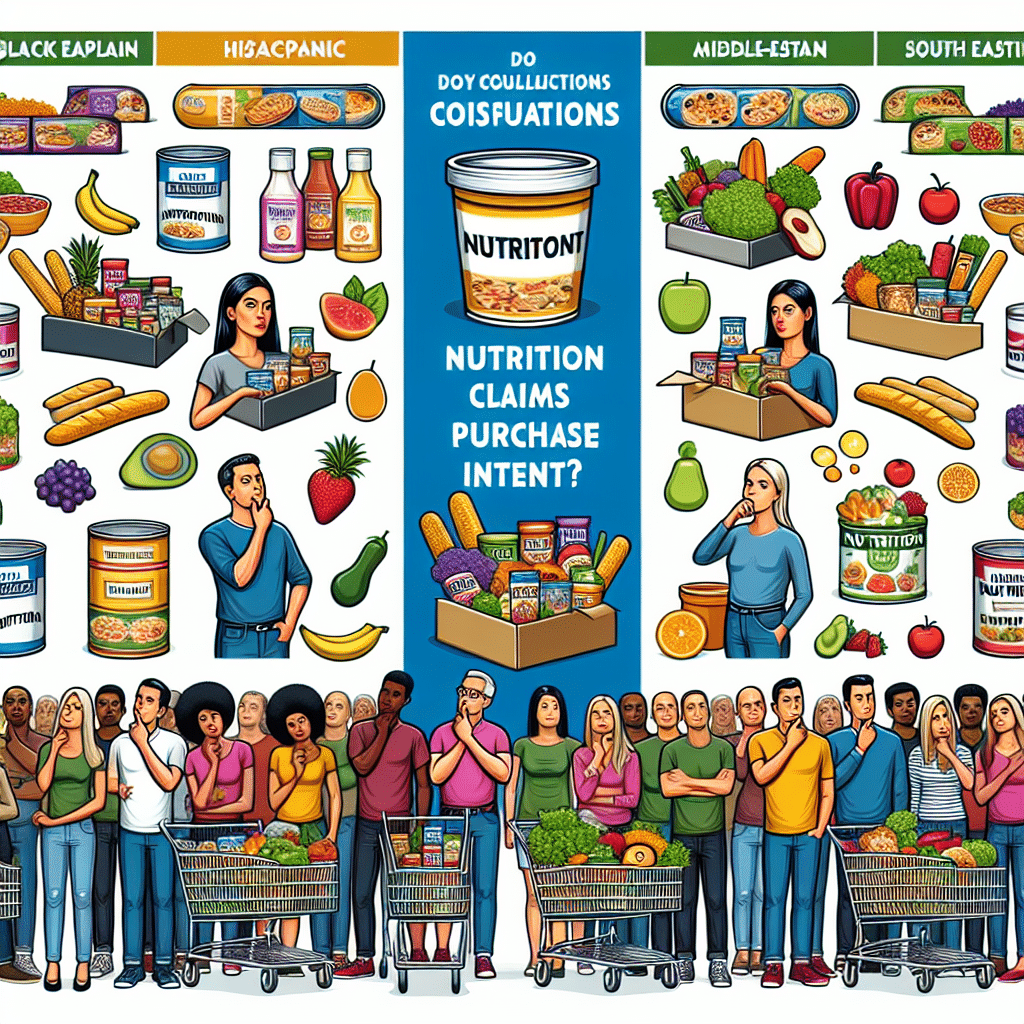Do Nutrition Claims Impact Purchase Intent?
-
Table of Contents
- Nutrition Claims and Their Influence on Consumer Purchase Intent
- The Power of Nutrition Claims
- Understanding Consumer Perception
- Research on Nutrition Claims and Purchase Intent
- Case Studies: Nutrition Claims in Action
- Regulation of Nutrition Claims
- Consumer Savviness and Skepticism
- Conclusion: The Impact of Nutrition Claims
- ETChem’s Protein Products: A Nutritious Choice
Nutrition Claims and Their Influence on Consumer Purchase Intent

In an era where health consciousness is on the rise, consumers are increasingly scrutinizing the nutritional content of their food. Nutrition claims on packaging play a pivotal role in shaping purchase decisions. This article delves into the impact of these claims on consumer behavior, supported by research, examples, and statistics.
The Power of Nutrition Claims
Nutrition claims are statements on food packaging that describe the nutritional value of a product. These claims can range from ‘low fat’ and ‘high in fiber’ to ‘contains omega-3 fatty acids’ and ‘no added sugar.’ The presence of these claims can significantly influence a consumer’s perception of a product and, consequently, their intent to purchase.
Understanding Consumer Perception
Consumers often use nutrition claims as shortcuts to make quick and informed decisions about the healthfulness of a product. These claims can lead to a ‘health halo’ effect, where consumers perceive a product as healthier overall based on a single claim. This perception can overshadow other less healthy attributes of the product.
Research on Nutrition Claims and Purchase Intent
Studies have shown that nutrition claims do impact consumer behavior. For instance:
- A study published in the Journal of Consumer Affairs found that nutrition claims on the front of packaging are more likely to influence purchase decisions than claims on the back.
- Research in the Appetite journal indicated that products with health-related claims were perceived as healthier and more likely to be purchased than those without claims.
- According to a survey by the International Food Information Council Foundation, over one-third of consumers rely on health claims when purchasing food.
These findings suggest that nutrition claims can be a decisive factor for many consumers when choosing what to buy.
Case Studies: Nutrition Claims in Action
Several case studies highlight the impact of nutrition claims on purchase intent:
- A cereal brand experienced a significant increase in sales after adding ‘whole grain’ to its packaging, despite no change in the product’s formulation.
- A snack company saw a boost in market share after prominently displaying ‘gluten-free’ on its products, tapping into consumer demand for gluten-free options.
These examples underscore the potential of nutrition claims to drive consumer behavior and market success.
Regulation of Nutrition Claims
It’s important to note that the use of nutrition claims is regulated by government agencies, such as the FDA in the United States and EFSA in Europe, to ensure that they are not misleading. Compliance with these regulations is crucial for maintaining consumer trust.
Consumer Savviness and Skepticism
While nutrition claims can influence purchase intent, consumers are becoming more savvy and skeptical. Many are aware that claims can be marketing tactics and are learning to read beyond the claims by checking the nutritional facts and ingredient lists.
Conclusion: The Impact of Nutrition Claims
Nutrition claims can significantly impact purchase intent, acting as powerful marketing tools that communicate the health benefits of a product. However, consumer awareness and regulatory oversight are essential to ensure that these claims remain trustworthy and beneficial.
ETChem’s Protein Products: A Nutritious Choice
For those seeking high-quality protein products, ETChem offers a range of collagen-based options. Their products, which include marine, fish, bovine, and chicken collagen, are characterized by their neutral taste and instant solubility, making them an excellent choice for various applications.
ETChem’s commitment to quality and their extensive product range make them a go-to source for protein needs in the nutraceutical, pharmaceutical, cosmeceutical, and food and beverage industries.
About ETChem:
ETChem, a reputable Chinese Collagen factory manufacturer and supplier, is renowned for producing, stocking, exporting, and delivering the highest quality collagens. They include marine collagen, fish collagen, bovine collagen, chicken collagen, type I collagen, type II collagen and type III collagen etc. Their offerings, characterized by a neutral taste, instant solubility attributes, cater to a diverse range of industries. They serve nutraceutical, pharmaceutical, cosmeceutical, veterinary, as well as food and beverage finished product distributors, traders, and manufacturers across Europe, USA, Canada, Australia, Thailand, Japan, Korea, Brazil, and Chile, among others.
ETChem specialization includes exporting and delivering tailor-made collagen powder and finished collagen nutritional supplements. Their extensive product range covers sectors like Food and Beverage, Sports Nutrition, Weight Management, Dietary Supplements, Health and Wellness Products, ensuring comprehensive solutions to meet all your protein needs.
As a trusted company by leading global food and beverage brands and Fortune 500 companies, ETChem reinforces China’s reputation in the global arena. For more information or to sample their products, please contact them and email karen(at)et-chem.com today.




